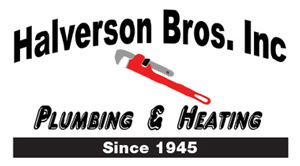
Completing the search for your first home is thrilling. You’re likely juggling numerous details to ensure you’re making the right choice. We believe that understanding your potential new HVAC system is crucial. The property’s HVAC system represents a substantial investment and source of potential long-term costs, which is why due diligence should be a top priority for first-time homebuyers.
In this guide, we’ll share seven tips for discovering all there is to know about a home’s heating and cooling system. And if you want a deeper opinion from the experts, feel free to call Halverson Brothers Inc. Our staff can weigh in on your options with industry insights you won’t find elsewhere.
1. What Type of HVAC System Is It?
Start by determining what kind of HVAC system the home has. Furnaces generally last longer than air conditioners, and relatively new types of HVAC equipment like heat pumps feature average life spans longer than ever. Getting the details on the make and specific model provides a clear understanding of how much routine maintenance it might need.
2. What Is the Current System’s Age?
Another good idea is to find out how old the HVAC system is when you're looking at a potential new home. For the most part, HVAC systems last about 10-12 years. Learning its approximate installation date helps you prepare for any needed servicing or when it might shut down for good. Older systems are at a higher risk of problems, so fiscal planning for a replacement unit might be needed faster than expected.
3. Is the Warranty Still in Effect?
Don’t forget to look into whether the HVAC system is still under warranty. If it is, this can lighten the load for maintenance costs. HVAC warranties often cover parts and labor, but the details in each policy will vary. Review any terms that aren’t familiar to make sure you fully understand your coverage and any possible out-of-pocket costs.
4. Does the System Have a Documented Maintenance History?
Next, examine the maintenance history of the HVAC system, if the records are available. This service history can reveal if there have been regular problems or how much upkeep was provided. Ask about records for key tasks such as changing the air filter, which means it enjoyed more regularly scheduled tune-ups.
5. What Are the Energy Efficiency Ratings?
Selecting a system with great energy efficiency can lead to lower utility bills and less of an impact on the environment. Locate the seasonal energy efficiency ratio (SEER) ratings for air conditioning as well as the annual fuel utilization efficiency (AFUE) for furnaces. Higher SEER ratings mean better cooling across the entire season, while higher AFUE ratings illustrate that the fuel is more effectively burned for useable heat.
6. Have You Noticed Signs of Problems During Your Inspection?
Even if you don’t have experience in HVAC systems, it's still a good idea to inspect the HVAC system yourself. Watch closely for signs of problems that haven't been mentioned by the seller. This might consist of odd sounds, stubborn patches of the house that are too hot or cold and attempts to hide any obvious damage.
7. Is an Experienced HVAC Technician Available to Help?
If you're still hesitant to make an offer because of the current state of the HVAC system, it's wise to get input from experienced HVAC professionals. They can spot things you might not, like refrigerant leaks, damage to the wiring or flawed ductwork.
A Consultation with Halverson Brothers Inc Simplifies Your Home-Buying Journey
Selecting your first home is meant to be a joyful event, and Halverson Brothers Inc wants to ensure yours is too. Get in touch with us at 715-352-4052. We can discuss how our HVAC services ease your mind, giving you what you need to dive into home-ownership with confidence.






